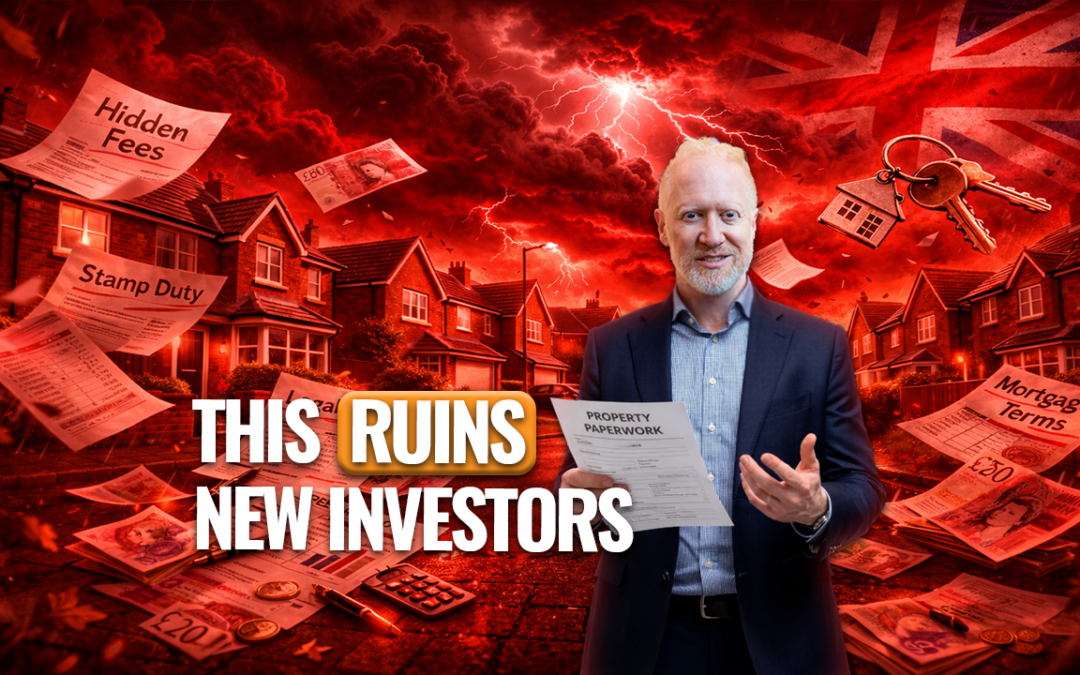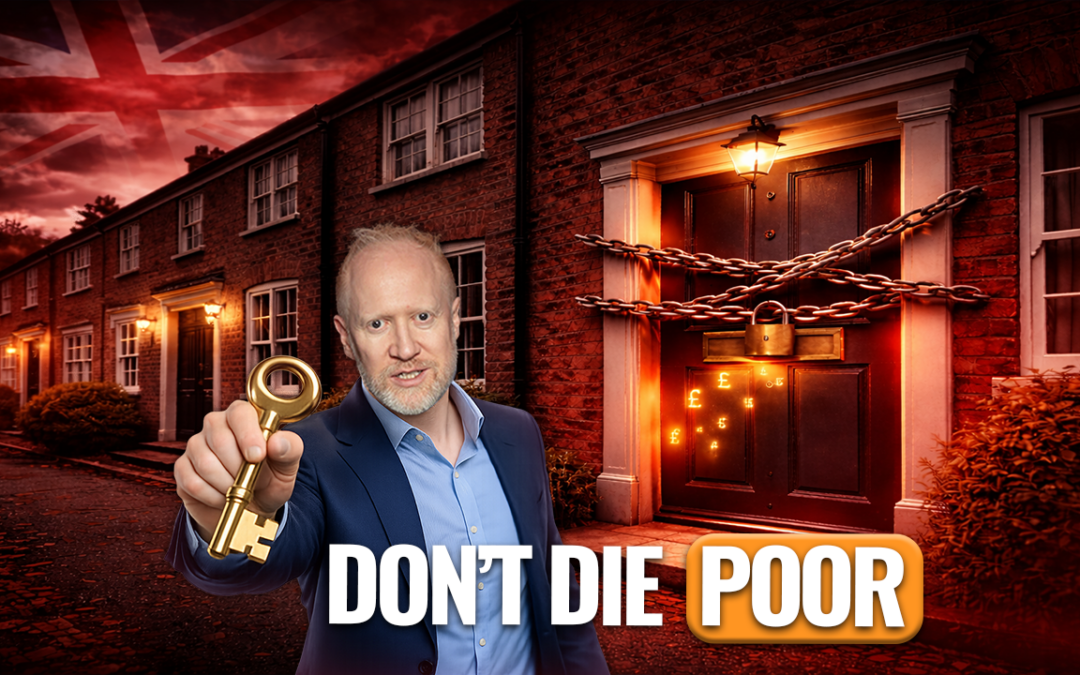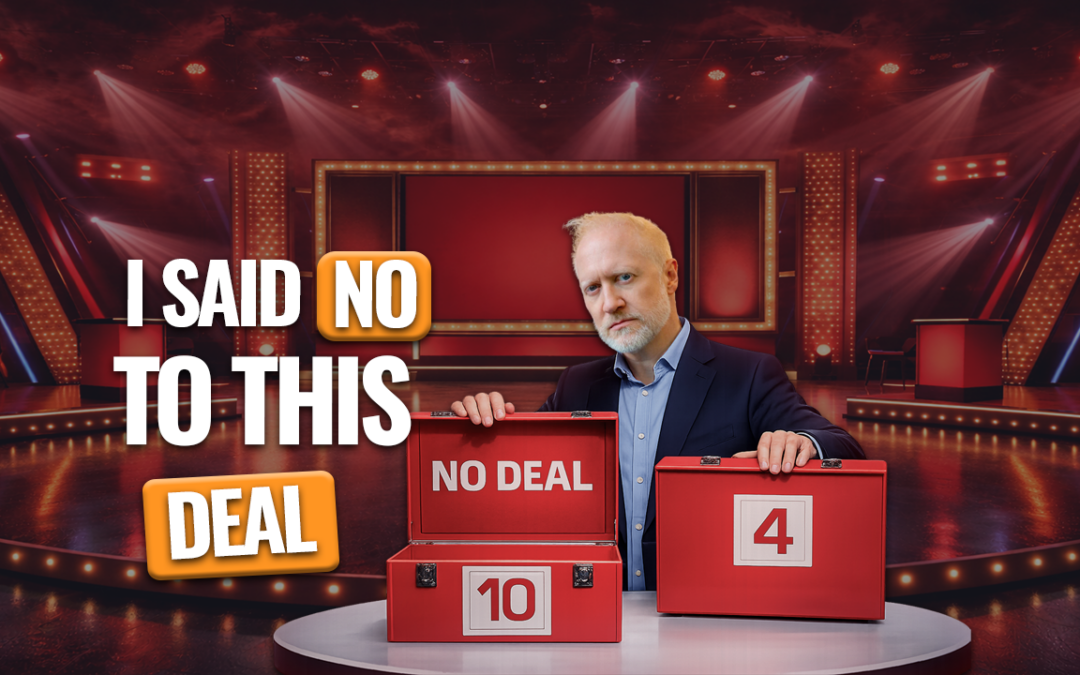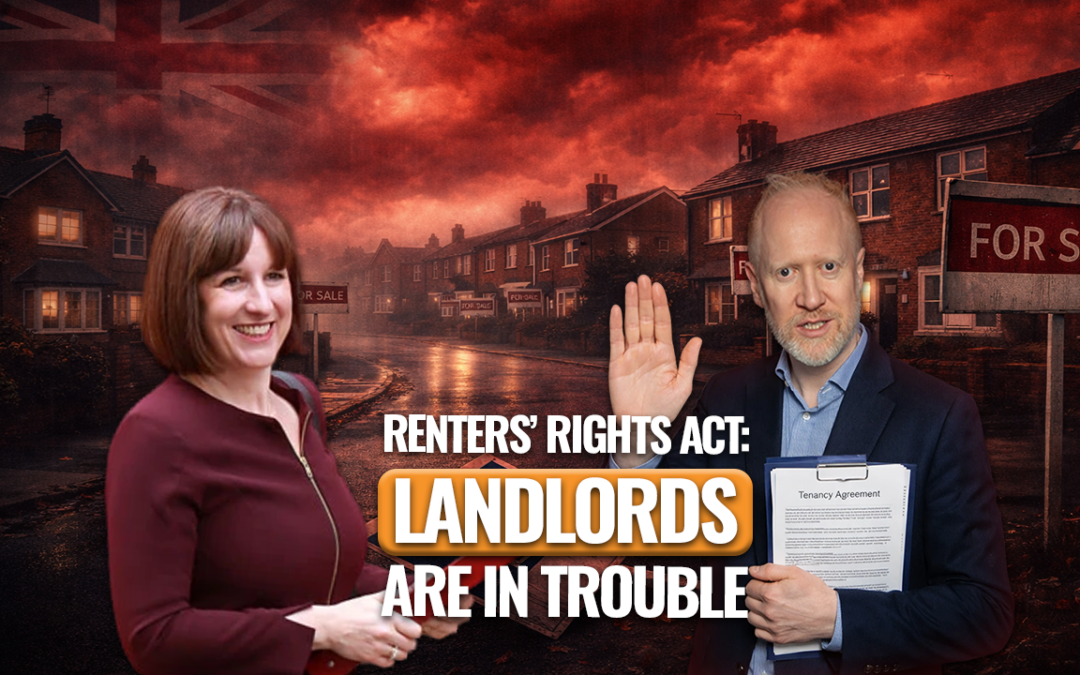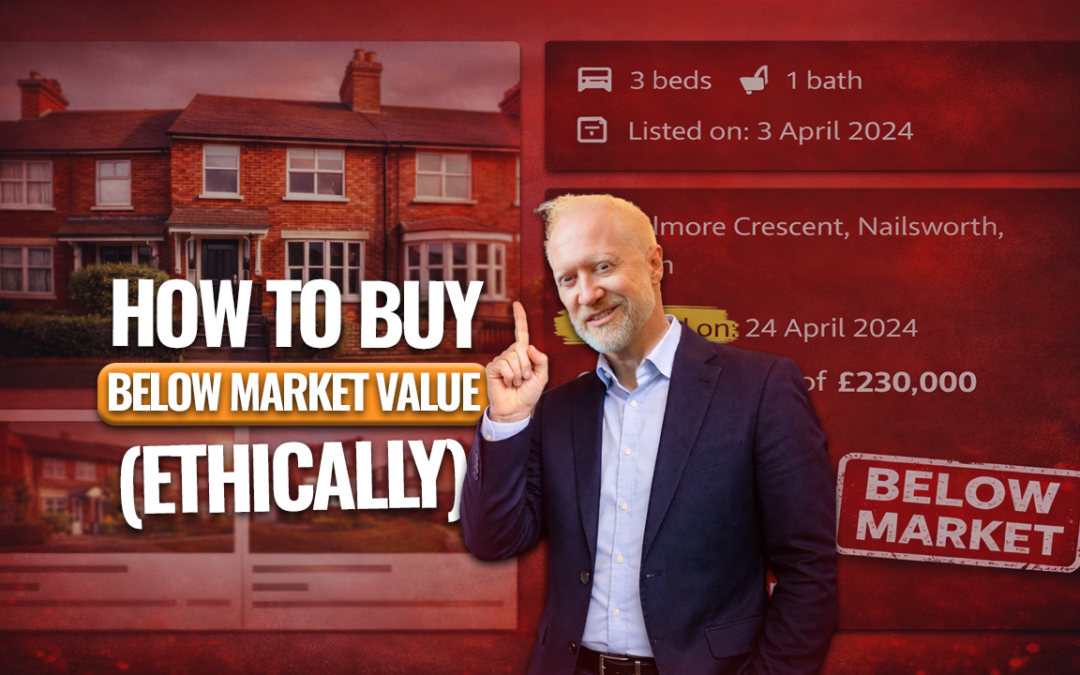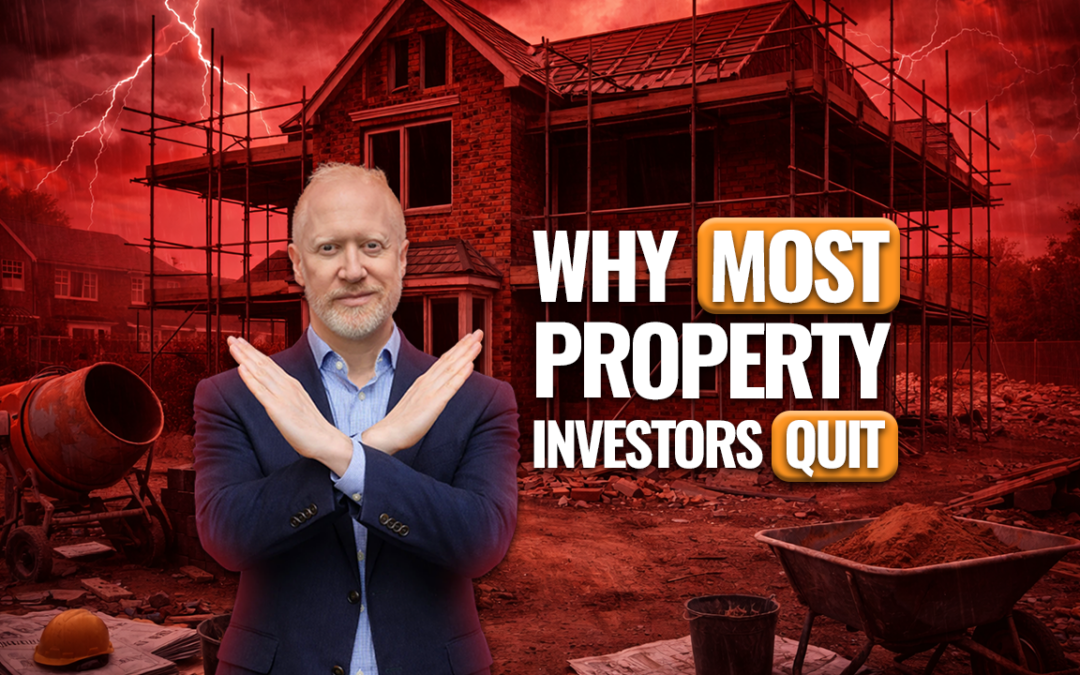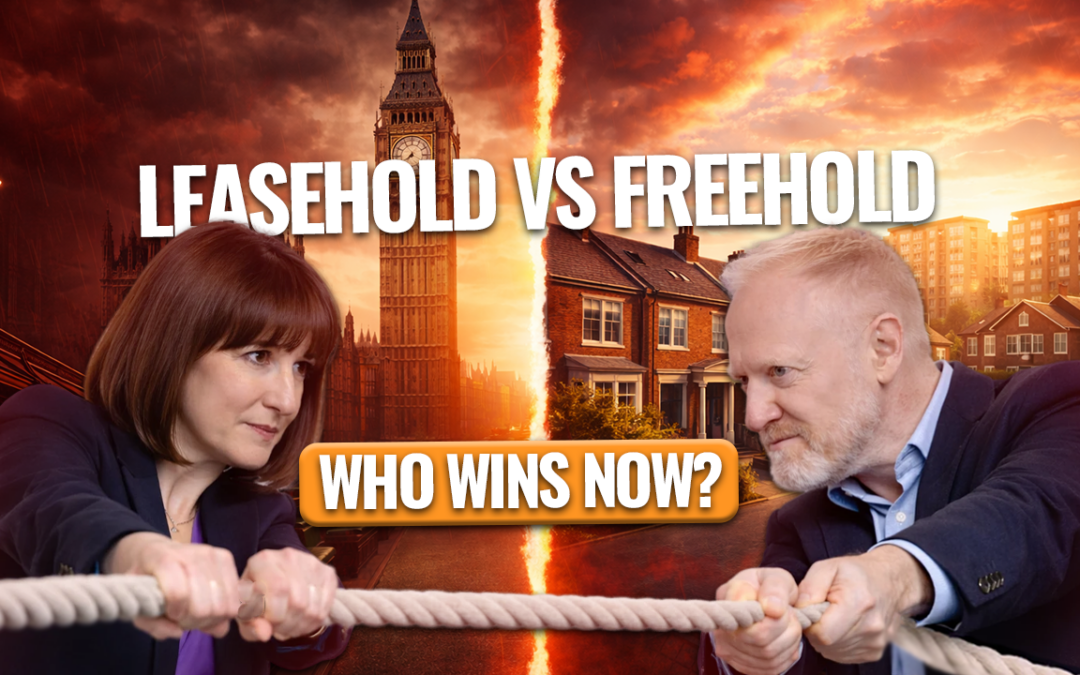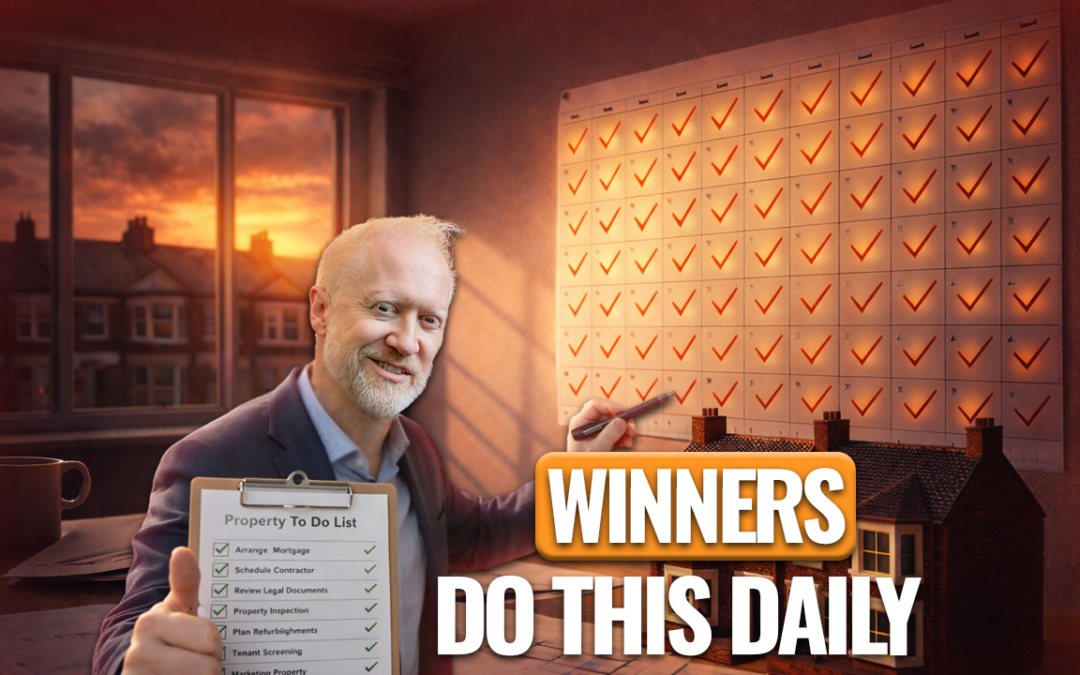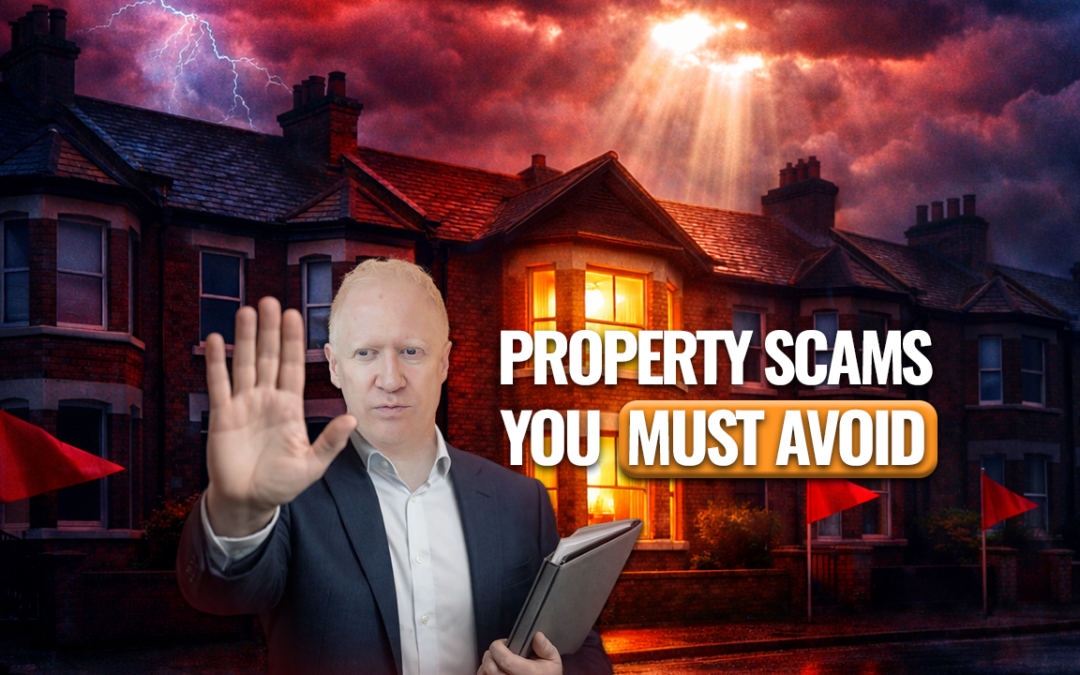In this blog, I will be giving you an introduction to creative finance. In other words, how you can finance your next property deal using none of your own money. I have purchased a number of properties using none of my own money, and I’ve taught many of my students how to do this successfully as well. Now it’s important to say at the very beginning, we’re not talking about doing anything dodgy or illegal. We want to make sure we do things properly and correctly, and that we’re just working creatively with motivated sellers.
If you’ve got someone who’s selling a property, they probably just want to get it sold. They don’t want to do anything creative; they want a nice, simple transaction. However, you may come across a motivated seller. A motivated seller, which is something I talk about in “Property Magic,” is someone who might have a property problem so they need speed and certainty. Those people might be more open to being creative. It’s interesting to see that when the market declines and there aren’t that many buyers in the market, just lots of people who still need to sell, buyers become a bit more open to creative solutions. They might consider things like vendor finance, purchase lease options or exchange with delayed completion. All of which I’ll talk about in this blog, but it’s about being open to understanding that there are different ways to invest, rather than just the traditional way of investing.
Build Your Belief
The other thing I would say is that a lot of people believe you can’t do creative finance because maybe they haven’t done it personally or they don’t know anyone that has. To build your belief and knowledge it’s great to look at case studies of other people who’ve actually done these kinds of deals. And if they’ve done it, well, it means it’s possible. Obviously you’ve got to make sure you do things correctly and legally, as we said before, but these deals are absolutely in the right circumstances. That’s really important because they don’t work all of the time. Let me give you some examples of different types of creative finance and give you a little bit of an introduction to them so at least you can raise your awareness as to some of the possibilities.
“To build your belief and knowledge it’s great to look at case studies of other people who’ve actually done these kinds of deals. And if they’ve done it, well, it means it’s possible.”
Purchase Lease Options
There are lots of posts on this blog all about purchase lease options so you might want to check out some of those. Fundamentally it’s where someone’s got a property they’re trying to sell. They don’t want the property, they want to get rid of the property for whatever reason. But interestingly, they don’t necessarily need the money from the sale. They’re not selling because they need to release the equity, they’re selling because they just don’t want the property. We can approach those people and say, “Look, we’d like to buy that property from you, not now, but sometime in the future.” We agree on a price today and in the meantime we look after that property and we babysit their mortgage, if there is a mortgage.
We look after their mortgage payments for them. We look after the maintenance of it. You take on full responsibility as if you have bought the property, but you haven’t actually bought it. The property stays in their name. If there’s a mortgage, it stays in their name. You need to make sure you get permission from the lender that the property is used in the correct way and it’s insured properly. But this is a great way of you controlling that asset and potentially getting cash flow and equity growth from a property you don’t own.
So a purchase lease option is one of the creative finance strategies you can use. Now, there is some money required when you do an option. But it can be as low as less than a thousand pounds. Taking into account all the fees, you might be paying an estate agent their fees and you might be paying a sourcer a fee to find a deal for you. I’d say on average it’s between five and ten thousand pounds to do a purchase lease option. That’s much better than having to put in the normal 25% deposit. By the way, you can actually finance that. As long as you have a property company, they will give you all the money to cover the costs. So again, it can be done no money down if you have the right knowledge and you have the right contacts.
“This is a great way of you controlling that asset and potentially getting cash flow and equity growth from a property you don’t own.”
Exchange with Delayed Completion
The next thing I want to discuss is an EDC, an exchange with delayed completion. Now this is similar to an option, but there are a couple of key differences. First of all, when you exchange contracts, you are committing to buy that property and the seller has to sell to you. With an option, you’ve got the right to buy if you want to, but you’re not obligated to. Of course you should intend to buy that, but if you don’t want to buy it then you don’t have to. With an EDC, you are definitely buying that property.
Most people, when they buy a property, they’ll exchange on a Friday, have a week’s delay, and then a week later they will complete. That’s because once they’ve exchanged contracts, their solicitor will draw down the money from the mortgage company and get their deposit. They’ve got everything together to buy the property the following week. You can actually do a simultaneous exchange and completion. If you let solicitor know, they’ll draw the money down before you actually buy it and do that on the same day. Or you could have this delayed completion. You exchange, and you can complete in a couple of months, a couple of years, if that’s what you want. You might even get permission to use that property in the meantime.
A great way of using it for a lot of people is renovating the property. They buy a property and they spend the money renovating. They can’t rent it out, as they’ve got costs during that time. Then after six months, they can refinance it to get back the money they’ve spent on the deposit and also the renovation. And that’s fine, that works, but there’s a better way. What about if when you exchange contracts and you put down a deposit? Typically it’s 10%, but it doesn’t have to be, it could be 1% or anything that you and the seller agree on. It wouldn’t be more than 10%. But you put down a deposit, you spend the money doing the work and then once you’ve added value to the property, you can buy the property at the higher value, which means that you often don’t have to put a deposit into the property. This is a little bit more a creative strategy, but I just wanted you to raise your awareness of it.
Vendor Finance
Finally, I want to discuss vendor finance. This is when a vendor is selling a property but they don’t need all the money. As I mentioned previously, the person who is prepared to do an option doesn’t need all the money right now, they’re prepared to wait. But this particular person however, they don’t want to wait, they want to get the sale done. Maybe property’s worth £200,000. You might buy at the full price but they will lend you the deposit to buy that property. Now this needs to be done in the correct way. We need to make sure that anything that needs to be declared to lenders is declared. Otherwise it would be mortgage fraud and you don’t want to do that. So there are certain ways you need to do this properly and carefully. Most mortgage companies wouldn’t like that because they want to see you putting some money into it; they want to see some skin in the game. The problem is, if you put 25% deposits into every property you buy, no matter how much money you have, at some point you will run out of your own funds.
This is why we use creative strategies such as PLOs, EDC, and vendor finance so that we can buy more property. There are some other creative things you can do. You could joint venture with the owner. Let’s say you find a property that needs developing and value adding. Rather than you buying that property and spending the money doing it, you get the owner to put the property in. You bring the money in to do the work, which you can borrow from someone else. The work’s finished off, you then sell or refinance the property. Again, you’re getting some profit share from this using very little of your own money. It’s about opening your mind to understand there are lots of different ways of financing deals that don’t all have to be done in the conventional way of putting in a big deposit and getting a mortgage.
I’ve got some online training all about this. It goes into a bit more detail about some of these strategies. And I’d love to give that to you as a gift. All you have to do is click on the link below and register for that online training. I’ve got a lot more time to go through each of these strategies in detail and explain when the circumstances are right for those particular deals.
So come and register for that training, I’d love to give you more information on how you could use creative finance to buy and control a lot more property than you might be doing right now.

